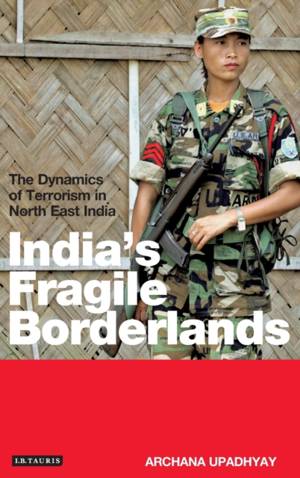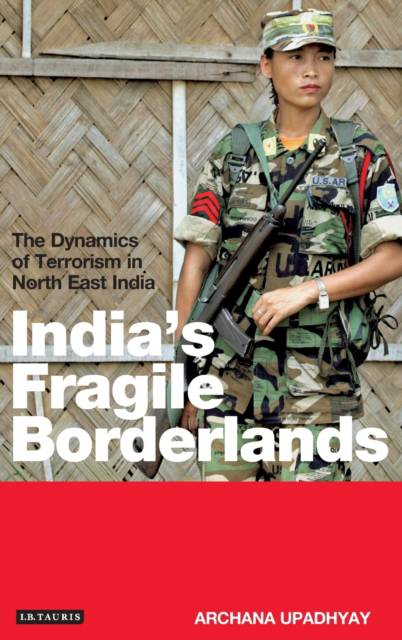
Bedankt voor het vertrouwen het afgelopen jaar! Om jou te bedanken bieden we GRATIS verzending (in België) aan op alles gedurende de hele maand januari.
- Afhalen na 1 uur in een winkel met voorraad
- In januari gratis thuislevering in België
- Ruim aanbod met 7 miljoen producten
Bedankt voor het vertrouwen het afgelopen jaar! Om jou te bedanken bieden we GRATIS verzending (in België) aan op alles gedurende de hele maand januari.
- Afhalen na 1 uur in een winkel met voorraad
- In januari gratis thuislevering in België
- Ruim aanbod met 7 miljoen producten
Zoeken
€ 296,95
+ 593 punten
Omschrijving
There is a danger in the West of viewing terrorism exclusively through the prism of 9/11. This ground-breaking examination of terrorism in North East India demonstrates how grave a mistake this is. The nature of terrorism is the subject of ever-increasing scrutiny and there are many lessons to be learned from India's borderlands. Terrorism, fostered at first by post-colonial resentments, took root in the region because of an increased sense of cultural identity and perceived discrimination and exclusion by the Indian state. This book examines the long term effects of terrorism on the population of North East India - where the best-known conflict is the Naga tribe's ongoing campaign for a greater Nagaland - as well as its international consequences. "India's Fragile Borderlands" offers a comprehensive study of the nature, origins and history of terrorism in India's North East within an international perspective. Sharing borders with China, Bangladesh, Nepal, Myanmar (Burma) and Bhutan, the region abounds in nationalist, separatist and even religious organizations that have used terrorism as a strategy to achieve their aims.
Archana Upadhyay explores the complex and specific ideologies of these groups while highlighting the cross-border links and connections with organized crime that funds the violence in the region. This important new book includes many insights into the nature of terrorism in India's northeastern frontiers and will be invaluable for students of politics, history and International Relations.
Archana Upadhyay explores the complex and specific ideologies of these groups while highlighting the cross-border links and connections with organized crime that funds the violence in the region. This important new book includes many insights into the nature of terrorism in India's northeastern frontiers and will be invaluable for students of politics, history and International Relations.
Specificaties
Betrokkenen
- Auteur(s):
- Uitgeverij:
Inhoud
- Aantal bladzijden:
- 336
- Taal:
- Engels
- Reeks:
Eigenschappen
- Productcode (EAN):
- 9781845115869
- Verschijningsdatum:
- 1/06/2009
- Uitvoering:
- Hardcover
- Formaat:
- Genaaid
- Afmetingen:
- 163 mm x 236 mm
- Gewicht:
- 680 g

Alleen bij Standaard Boekhandel
+ 593 punten op je klantenkaart van Standaard Boekhandel
Beoordelingen
We publiceren alleen reviews die voldoen aan de voorwaarden voor reviews. Bekijk onze voorwaarden voor reviews.









